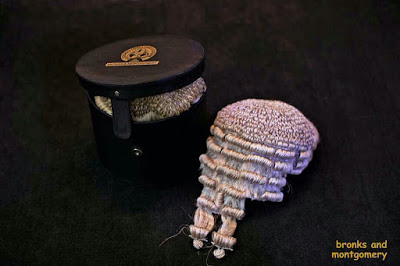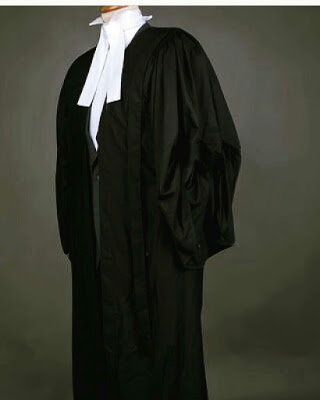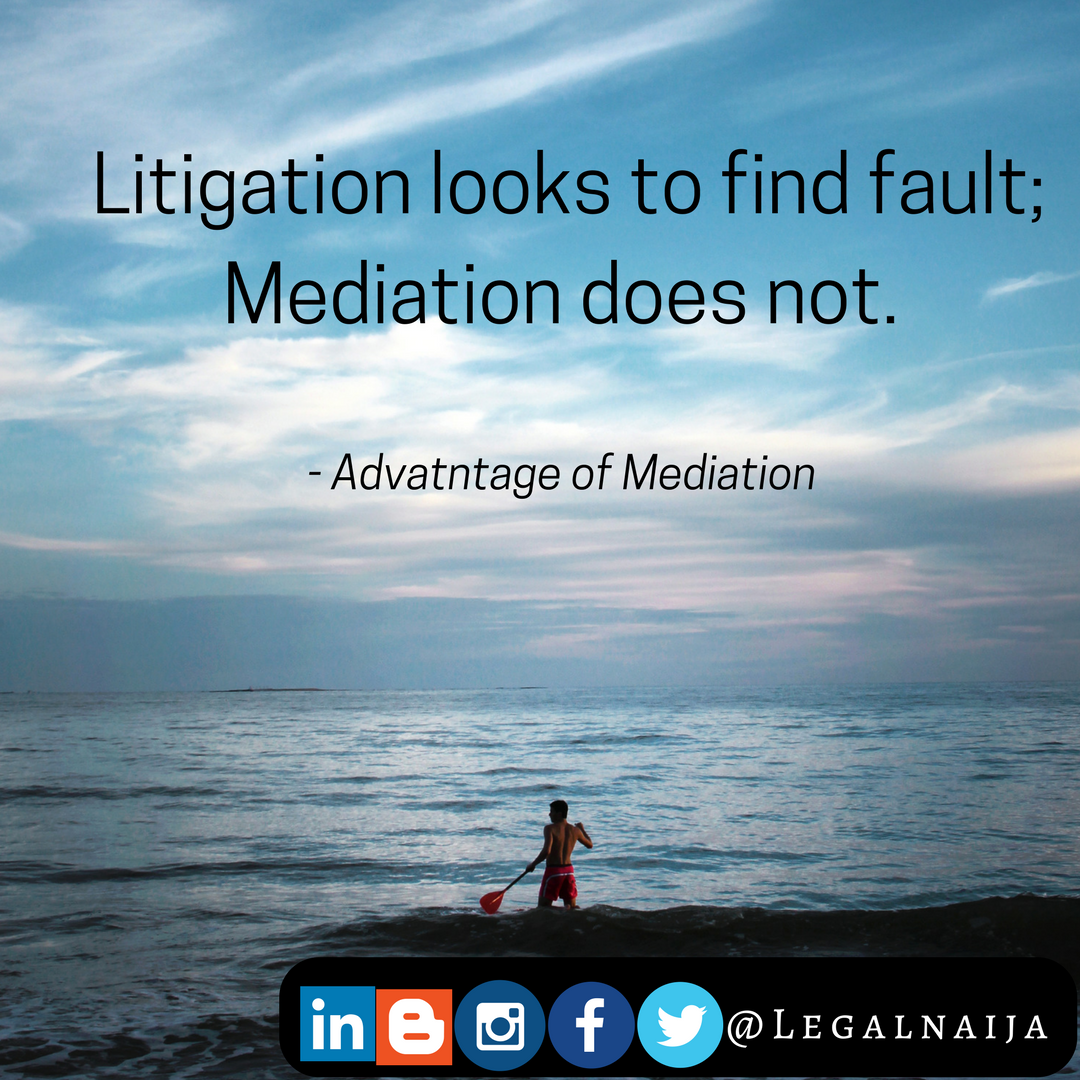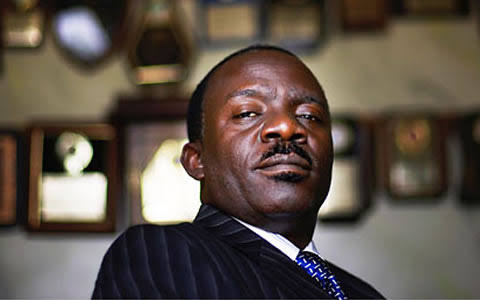
Star Profile – Nicholas Akintola Ladapo

Principal
partner Chief Ladosu Ladapo ( SAN)& CO
partner Chief Ladosu Ladapo ( SAN)& CO
Mr. Akintola Ladapo
is an amazing man. Words are not enough to begin to describe him. He likes to
play squash and surprisingly, he is a very good dancer. How do I know? Well, I happened to see him
dance at his wife’s retirement thanksgiving service with his mighty ‘Agbada’
attire. The Reverend at the Methodist church Bodija Ibadan could not hide his
astonishment at what he noticed in Mr. Akintola Ladapo’s skills on the dance
floor.
is an amazing man. Words are not enough to begin to describe him. He likes to
play squash and surprisingly, he is a very good dancer. How do I know? Well, I happened to see him
dance at his wife’s retirement thanksgiving service with his mighty ‘Agbada’
attire. The Reverend at the Methodist church Bodija Ibadan could not hide his
astonishment at what he noticed in Mr. Akintola Ladapo’s skills on the dance
floor.
In a bid to share
very inspiring stories of Lawyers who have made a mark for themselves, I had
the rare opportunity of having a 4 hour sit down discussion with him.
very inspiring stories of Lawyers who have made a mark for themselves, I had
the rare opportunity of having a 4 hour sit down discussion with him.
Read on, I am sure
you will enjoy and learn a lot from his story.
you will enjoy and learn a lot from his story.
He is a lawyer who
has been in practice for about 38 years. Akintola Ladapo is the Principal
partner of Chief Ladosu Ladapo (SAN) & Co. He was the Solicitor- General of
Oyo State.
has been in practice for about 38 years. Akintola Ladapo is the Principal
partner of Chief Ladosu Ladapo (SAN) & Co. He was the Solicitor- General of
Oyo State.
On the 1st of October 1955, at
Island maternity hospital Lagos, a baby who has grown into a delectable personality,
a perfect picture of a role model that is very worthy of emulation was born. He
was born into the family of Chief Ladosu Ladapo (SAN) and Lady Olapeju Cecilia
Ladapo nee ADESANYA. He was christened and named Nicholas Akintola Ladapo.
Island maternity hospital Lagos, a baby who has grown into a delectable personality,
a perfect picture of a role model that is very worthy of emulation was born. He
was born into the family of Chief Ladosu Ladapo (SAN) and Lady Olapeju Cecilia
Ladapo nee ADESANYA. He was christened and named Nicholas Akintola Ladapo.
Brief
history
history
Growing up was fun, we played football, I
used to chase masquerades on my way from school when I was in Primary school.
We learnt vocations like grass cutting, theatre arts etc in school. It was fun
being a kid then, unlike now.
used to chase masquerades on my way from school when I was in Primary school.
We learnt vocations like grass cutting, theatre arts etc in school. It was fun
being a kid then, unlike now.
Nigeria was
peaceful, there was no robbery , you could pack your vehicle without locking
it. Stealing was a taboo in those days, if you stole, you will be taken to the
front of your father’s house and you will be disgraced.
peaceful, there was no robbery , you could pack your vehicle without locking
it. Stealing was a taboo in those days, if you stole, you will be taken to the
front of your father’s house and you will be disgraced.
I went through
discipline with my dad and in those days, moral standards were maintained and
you were expected to follow to the letter what your elders told you.
discipline with my dad and in those days, moral standards were maintained and
you were expected to follow to the letter what your elders told you.
Education was taken
very seriously, you must do well in school, go to church on Sundays and we kept
a healthy life style .
very seriously, you must do well in school, go to church on Sundays and we kept
a healthy life style .
At 5years of age,
Mr. Akintola Ladapo attended St. Patrick Primary School Abebi Ibadan. After
which he attended Loyola college in Ibadan for WASSCE and then St. Gregory
college for his HSC Lagos 1973-74 .He was a member of the School football team
and food committe66e. He gained
admission to the prestigious University of Lagos in 1974. He went to law school and was called to the Nigerian Bar in 1979. He
went for National Youth service in the then Bendel State.
Mr. Akintola Ladapo attended St. Patrick Primary School Abebi Ibadan. After
which he attended Loyola college in Ibadan for WASSCE and then St. Gregory
college for his HSC Lagos 1973-74 .He was a member of the School football team
and food committe66e. He gained
admission to the prestigious University of Lagos in 1974. He went to law school and was called to the Nigerian Bar in 1979. He
went for National Youth service in the then Bendel State.
I have always known
I would be a lawyer. It is good for parents to know their children so that they
can direct them in the right path. I avoided pressures to go to the judiciary
or to become a traditional Chief because I chose to do the full practice of law.
I would be a lawyer. It is good for parents to know their children so that they
can direct them in the right path. I avoided pressures to go to the judiciary
or to become a traditional Chief because I chose to do the full practice of law.
Work
experience
experience
Aside practicing in
1981, he became legal officer at punch Nigeria Ltd in 1981. He came back to Chief
Ladosu Ladapo (SAN) & Co to practice in 1983. In 1999, he was appointed as
a member of Oyo State pilgrims welfare board (Christian ) and in 2000, he was
appointed a member of the Commission of Enquiry into Ethnic Disturbances in
Lagos State. In 2003, he was appointed as a
Director at the Ministry of Justice Oyo State and rose to become
Solicitor General in 2012. After he retired at the Ministry of Justice he came
back to Chief Ladosu Ladapo (SAN) and Co to resume full private legal practice
in which he is currently engaged.
1981, he became legal officer at punch Nigeria Ltd in 1981. He came back to Chief
Ladosu Ladapo (SAN) & Co to practice in 1983. In 1999, he was appointed as
a member of Oyo State pilgrims welfare board (Christian ) and in 2000, he was
appointed a member of the Commission of Enquiry into Ethnic Disturbances in
Lagos State. In 2003, he was appointed as a
Director at the Ministry of Justice Oyo State and rose to become
Solicitor General in 2012. After he retired at the Ministry of Justice he came
back to Chief Ladosu Ladapo (SAN) and Co to resume full private legal practice
in which he is currently engaged.
He had so many inter-ministerial appointments and
headed many departments while at the Ministry of Justice. In 2005, he was
appointed as a member of the Judicial Committee for the Review of Civil Procedure
Rules of Oyo State which resulted in the
current one that is being used. He was appointed by the Chief judge to defend
the him (Chief) Judge for the famous Ladoja case. He was a member of Speedy
Administration of Criminal Justice which was headed by the Chief Judge.
headed many departments while at the Ministry of Justice. In 2005, he was
appointed as a member of the Judicial Committee for the Review of Civil Procedure
Rules of Oyo State which resulted in the
current one that is being used. He was appointed by the Chief judge to defend
the him (Chief) Judge for the famous Ladoja case. He was a member of Speedy
Administration of Criminal Justice which was headed by the Chief Judge.
Dami, I would tell
you this,I like defending people, taking care of the oppressed, speaking up for
those people who cannot speak for themselves and those who need justice , I
hate injustice and unfairness . As a Christian I believe in the creed of Proverbs
31 vs 8-9 ‘Open thy mouth for the dumb in the cause of all such as are
appointed to destruction. Open
thy mouth, judge righteously, and plead the cause of the poor and needy’. This
guides me to follow God’s instructions and carry them out.
you this,I like defending people, taking care of the oppressed, speaking up for
those people who cannot speak for themselves and those who need justice , I
hate injustice and unfairness . As a Christian I believe in the creed of Proverbs
31 vs 8-9 ‘Open thy mouth for the dumb in the cause of all such as are
appointed to destruction. Open
thy mouth, judge righteously, and plead the cause of the poor and needy’. This
guides me to follow God’s instructions and carry them out.
He refused to apply
for senior advocate of Nigeria because in his opinion the rank is no longer
honourable unlike in the days of his father when people that were seen to be
noble were appointed rather than the method of application as we have today.
for senior advocate of Nigeria because in his opinion the rank is no longer
honourable unlike in the days of his father when people that were seen to be
noble were appointed rather than the method of application as we have today.
Akintola Ladapo’s career principles:
I focused on being
a lawyer and being the best where ever I find myself.
a lawyer and being the best where ever I find myself.
Honesty, discipline
and integrity are my principles.
and integrity are my principles.
Discipline from
parents and school, shaped me.
parents and school, shaped me.
I knew what I
wanted, I resisted every other thing that was not what I wanted
wanted, I resisted every other thing that was not what I wanted
Experience was more
important to me, I was opened to learn different things in the journey. The
different responsibilities at my different work opportunities have helped me. I have all round experience from different
places.
important to me, I was opened to learn different things in the journey. The
different responsibilities at my different work opportunities have helped me. I have all round experience from different
places.
There is no way I
can tell you all that has happened in Mr. Akintola’s life but I would like to
mention that he was once a politician, he contested for the post of Governorship of Oyo State. He was so
disappointed at the mindset of people, he had very good intentions but they
failed to see because they could not think about the future. People would
rather vote for people with empty promises who simply give out money before
they get to the position. He refused to give out money because he was contesting
in order to serve them. He was going to work for them and deliver all his
promises. They rather voted for someone who gave out money and had no second
thought about them after he got the position.
can tell you all that has happened in Mr. Akintola’s life but I would like to
mention that he was once a politician, he contested for the post of Governorship of Oyo State. He was so
disappointed at the mindset of people, he had very good intentions but they
failed to see because they could not think about the future. People would
rather vote for people with empty promises who simply give out money before
they get to the position. He refused to give out money because he was contesting
in order to serve them. He was going to work for them and deliver all his
promises. They rather voted for someone who gave out money and had no second
thought about them after he got the position.
My experience
taught me that people don’t want honest people and people of integrity. Thankfully
we have the current administration who are ready to lead the Country to peace
and justice. I’m hoping and praying they succeed all the pressures from within
and outside.
taught me that people don’t want honest people and people of integrity. Thankfully
we have the current administration who are ready to lead the Country to peace
and justice. I’m hoping and praying they succeed all the pressures from within
and outside.
It is possible to
do honest practice and still get to the top. The current Vice President is an
example.
do honest practice and still get to the top. The current Vice President is an
example.
Let’s hold hands
together to make Nigeria work.
together to make Nigeria work.
Akintola Ladapo is one man I know who believes
in living the life of truth.
in living the life of truth.
Mentors
Chief Ladosu Ladapo
(SAN)
(SAN)
Details I believe
lawyers should pay attention to;
lawyers should pay attention to;
My dad played a
good role , I was impressed by his profession , he was a perfectionist , hard
working , he had integrity , believed in God he believed law is a tool you use to do good to others and yourself ,he
was a disciplined man a role model to lawyers all over Nigeria. He brought up
lawyers . He was always neat, he was a perfectionist as a lawyer, litigator,
SAN, solicitor, traditional Chief and in the Catholic Church where he was appointed
the knights of Saint Lumuba . He was a leader and member of Nigerian a bar Association, Commonwealth
Lawyers Association and International Bar Association, where he made his mark.
good role , I was impressed by his profession , he was a perfectionist , hard
working , he had integrity , believed in God he believed law is a tool you use to do good to others and yourself ,he
was a disciplined man a role model to lawyers all over Nigeria. He brought up
lawyers . He was always neat, he was a perfectionist as a lawyer, litigator,
SAN, solicitor, traditional Chief and in the Catholic Church where he was appointed
the knights of Saint Lumuba . He was a leader and member of Nigerian a bar Association, Commonwealth
Lawyers Association and International Bar Association, where he made his mark.
Professor Yemi
Osibajo (Vice president of Nigeria) –
Osibajo (Vice president of Nigeria) –
He is a very good
friend, I respect him , he is legal expert , honest, a person of integrity ,
erudite, disciplined, a role model as a husband, leader, lawyer. He mixes his
intellect with humility and morals. If all the office holders could be like him
Nigeria will be a better place to be.
friend, I respect him , he is legal expert , honest, a person of integrity ,
erudite, disciplined, a role model as a husband, leader, lawyer. He mixes his
intellect with humility and morals. If all the office holders could be like him
Nigeria will be a better place to be.
Justice Amina Augie
She is currently a
justice of the Supreme Court, I admire her because she is hardworking and
erudite, she promotes honesty and integrity and she has strong believe in God. She told me ‘I will get to the
supreme Court but it is God that will help me to get there’.
justice of the Supreme Court, I admire her because she is hardworking and
erudite, she promotes honesty and integrity and she has strong believe in God. She told me ‘I will get to the
supreme Court but it is God that will help me to get there’.
I’m sure you would
like to look like these people or rather you
would like people to say this about you.
like to look like these people or rather you
would like people to say this about you.
Mr.
Akintola Ladapo’s family life
Akintola Ladapo’s family life
Mr. Akintola Ladapo
and his wife met at the Youth service camp. Immediately Akintola saw her, he knew she was the one. He
told his friend, Prof. Yemi Osinbajo that he has found his wife. He did not
waste time , he went after her immediately.
and his wife met at the Youth service camp. Immediately Akintola saw her, he knew she was the one. He
told his friend, Prof. Yemi Osinbajo that he has found his wife. He did not
waste time , he went after her immediately.

He got married in 1981. He saw many virtues in
his wife. I promise I can attest to
that, I was there when people came to
give testimonies about her during her retirement thanksgiving . I had to tell
myself at that program; Damilola you still have plenty growing up to do.
his wife. I promise I can attest to
that, I was there when people came to
give testimonies about her during her retirement thanksgiving . I had to tell
myself at that program; Damilola you still have plenty growing up to do.
Mr. Akintola started dropping so many habits that his parents did not know of after he met his
wife.
wife.
She had an
influence on me , she was a born again Christian she was praying for me. I
became born again after marriage. I went to the gold smith fashioned a ring, I
did not want her to go, I put an engagement ring on her finger and also had
engagement party at the camp. Prof. Osinbajo
played a prominent role he held the
baskets of oranges at the engagement.
influence on me , she was a born again Christian she was praying for me. I
became born again after marriage. I went to the gold smith fashioned a ring, I
did not want her to go, I put an engagement ring on her finger and also had
engagement party at the camp. Prof. Osinbajo
played a prominent role he held the
baskets of oranges at the engagement.
The bible says he
who finds a wife has found a good thing, Mrs. Modupe Ladapo has indeed been a
good thing to my Boss.
who finds a wife has found a good thing, Mrs. Modupe Ladapo has indeed been a
good thing to my Boss.
He continued the
chase after youth service. He met her dad and he told him to put his request
and plans in writing. She started working in Lagos at the Federal Ministry of
Agriculture. After youth service he told
his friend Yemi to watch over her for him. What this
taught me is that you should go after
what you want in life and you also
protect it after you have gotten it.
chase after youth service. He met her dad and he told him to put his request
and plans in writing. She started working in Lagos at the Federal Ministry of
Agriculture. After youth service he told
his friend Yemi to watch over her for him. What this
taught me is that you should go after
what you want in life and you also
protect it after you have gotten it.
He went to meet her
in Lagos and told her to resign and take up an appointment as a teacher to
train and teach their future children,
because as a full time private legal
practitioner he will not be able to
devote enough time to see to the needs of the children.
in Lagos and told her to resign and take up an appointment as a teacher to
train and teach their future children,
because as a full time private legal
practitioner he will not be able to
devote enough time to see to the needs of the children.
I
did not have anything when I married her , did you see
that?!
did not have anything when I married her , did you see
that?!
We rented a place
at challenge in Ibadan it was empty but we started building little by little.
She earned more than I did when we got
married. That did not matter to her.
at challenge in Ibadan it was empty but we started building little by little.
She earned more than I did when we got
married. That did not matter to her.
Together they raised:
1st born
and 1st daughter, Olubukola
Cecelia Atuyota, she is a PH.d hopeful
in United States of America.
and 1st daughter, Olubukola
Cecelia Atuyota, she is a PH.d hopeful
in United States of America.
2nd born
and 1st son Lawale Nicholas Ladapo is an International lawyer and he has been called to the bar in four
different countries. Does that not amaze you? I was flabbergasted. I thought I had dreams
but this exceeded my own imagination. He had a first class at University of Lagos. He attended Cambridge
University and Harvard University for
his Masters Degree programs after he was called to the Bar in Nigeria. Wow!
People are achieving great stuff in this life.
My mind was blown, I couldn’t close my mouth when his Dad told me about
him. He works at Cleary Gottlieb Steen & Hamilton LLP in Abudhabi in United
Arab airways. I’m definitely going to
write about him soon.
and 1st son Lawale Nicholas Ladapo is an International lawyer and he has been called to the bar in four
different countries. Does that not amaze you? I was flabbergasted. I thought I had dreams
but this exceeded my own imagination. He had a first class at University of Lagos. He attended Cambridge
University and Harvard University for
his Masters Degree programs after he was called to the Bar in Nigeria. Wow!
People are achieving great stuff in this life.
My mind was blown, I couldn’t close my mouth when his Dad told me about
him. He works at Cleary Gottlieb Steen & Hamilton LLP in Abudhabi in United
Arab airways. I’m definitely going to
write about him soon.
3rd
born, 2nd Son Adekunola Richard Ladapo , is an Engineer and works
with Amazon in United States of America. He had his Masters Degree in
Engineering at Northeastern University, Boston , Massachusetts.
born, 2nd Son Adekunola Richard Ladapo , is an Engineer and works
with Amazon in United States of America. He had his Masters Degree in
Engineering at Northeastern University, Boston , Massachusetts.
4th born,
2nd daughter Bolaji Ladapo is also a lawyer. she worked at Olaniwan
Ajayi & Co. She is currently
pursuing her Masters Degree at Georgetown University, USA.
2nd daughter Bolaji Ladapo is also a lawyer. she worked at Olaniwan
Ajayi & Co. She is currently
pursuing her Masters Degree at Georgetown University, USA.
It gives me great
joy to have two of my children to be lawyers, one is an Academician and one is
an Engineer
joy to have two of my children to be lawyers, one is an Academician and one is
an Engineer
Extracurricular
activities
activities
Akintola Ladapo lives a balanced life he plays squash, his father introduced him and
his siblings to the game when they were younger. He plays on Sunday and
Wednesday evenings. He is an ardent supporter of Manchester United . Mr.
Akintola Ladapo still acts like a youth,
if you see him physically you will find it difficult to guess right his
age.
his siblings to the game when they were younger. He plays on Sunday and
Wednesday evenings. He is an ardent supporter of Manchester United . Mr.
Akintola Ladapo still acts like a youth,
if you see him physically you will find it difficult to guess right his
age.
I told you his life
is balanced he also goes for Bible study on Tuesdays and prayer meetings on
Thursdays together with the Sunday
service.
is balanced he also goes for Bible study on Tuesdays and prayer meetings on
Thursdays together with the Sunday
service.
Nugget from a
leader
leader
·
Be a good example to others.
Be a good example to others.
·
Live within your means.
Live within your means.
·
You have to read your book and be
disciplined.
You have to read your book and be
disciplined.
·
Go to court and do your case well because
it’s your name that will be in the law reports.
Go to court and do your case well because
it’s your name that will be in the law reports.
·
As a lawyer if you fail it’s by your own
choice.
As a lawyer if you fail it’s by your own
choice.
·
Have good mentors because that in itself is
hard. Not the ones rigging, paying their way through because those are not
honourable.
Have good mentors because that in itself is
hard. Not the ones rigging, paying their way through because those are not
honourable.
·
Don’t ever bend because of anything, you
will walk freely when you are not shady.
Don’t ever bend because of anything, you
will walk freely when you are not shady.
·
You can get things done better when you
don’t draw attention to yourself , you will achieve more that way.
You can get things done better when you
don’t draw attention to yourself , you will achieve more that way.
·
Don’t ask for anything that you don’t
deserve or else you will get burnt.
Don’t ask for anything that you don’t
deserve or else you will get burnt.
·
People ask for things that they don’t need
and it kills them. Don’t use your hand to soil yourself.
People ask for things that they don’t need
and it kills them. Don’t use your hand to soil yourself.
·
Thank God for what he has given you and
enjoy it.value your joy and peace because it is priceless.
Thank God for what he has given you and
enjoy it.value your joy and peace because it is priceless.
·
Lawyers are officers in the temple of
justice , you have to assist in pleading the case of your client.
Lawyers are officers in the temple of
justice , you have to assist in pleading the case of your client.
·
I did a pro bono case for a judge the
Accused person told me he did not do it, I believed him later on I realised
that he did it, I withdrew and told him to go and confess. Lawyers should not
shield wolves and those who break the law because of the money, they should
rather help justice , the judge needs the lawyers counsel on both sides to be
truthful.
I did a pro bono case for a judge the
Accused person told me he did not do it, I believed him later on I realised
that he did it, I withdrew and told him to go and confess. Lawyers should not
shield wolves and those who break the law because of the money, they should
rather help justice , the judge needs the lawyers counsel on both sides to be
truthful.
·
To be a successful lawyer is not a hard and
fast rule, hard work is key.
To be a successful lawyer is not a hard and
fast rule, hard work is key.
·
You will have challenges in your journey.
You will have challenges in your journey.
·
You can’t just say you have achieved. Achieving is continuous work.
You can’t just say you have achieved. Achieving is continuous work.
·
Our
profession needs cleansing just like our country , we can’t do it ourselves , we need God and we also
need to do things we ought to do. Do what is good and preach what is good too.
Our
profession needs cleansing just like our country , we can’t do it ourselves , we need God and we also
need to do things we ought to do. Do what is good and preach what is good too.
·
As women help your husband build good homes,
don’t compare what your husband with what your father has.
As women help your husband build good homes,
don’t compare what your husband with what your father has.
·
When you do good you are doing it for
yourself when you do bad you are doing it for yourself.
When you do good you are doing it for
yourself when you do bad you are doing it for yourself.
·
Stay clean especially because of the
future, straighten your records because it may come against you soon.
Stay clean especially because of the
future, straighten your records because it may come against you soon.
·
If you grow up you will stay up , but if
you jump up you will come down too soon.
If you grow up you will stay up , but if
you jump up you will come down too soon.
·
Lawyers, whether on the ben, prosecution or
defence are all officers in the temple of justice.
Lawyers, whether on the ben, prosecution or
defence are all officers in the temple of justice.
·
Law is a vehicle of the society, that is
why our laws must be relevant.
Law is a vehicle of the society, that is
why our laws must be relevant.
·
Irrelevant laws should be removed.
Irrelevant laws should be removed.
I hope this
Inspired you because I am inspired and I
just hope someone reading this will be determined to be better because all your
dreams are truly achievable, you only need to work and be true to the right
principles.
Inspired you because I am inspired and I
just hope someone reading this will be determined to be better because all your
dreams are truly achievable, you only need to work and be true to the right
principles.

Contributed
by;
Damilola
Dawodu
Dawodu
LinkedIn
: Damilola Dawodu
: Damilola Dawodu
edawodu89@gmail.com














